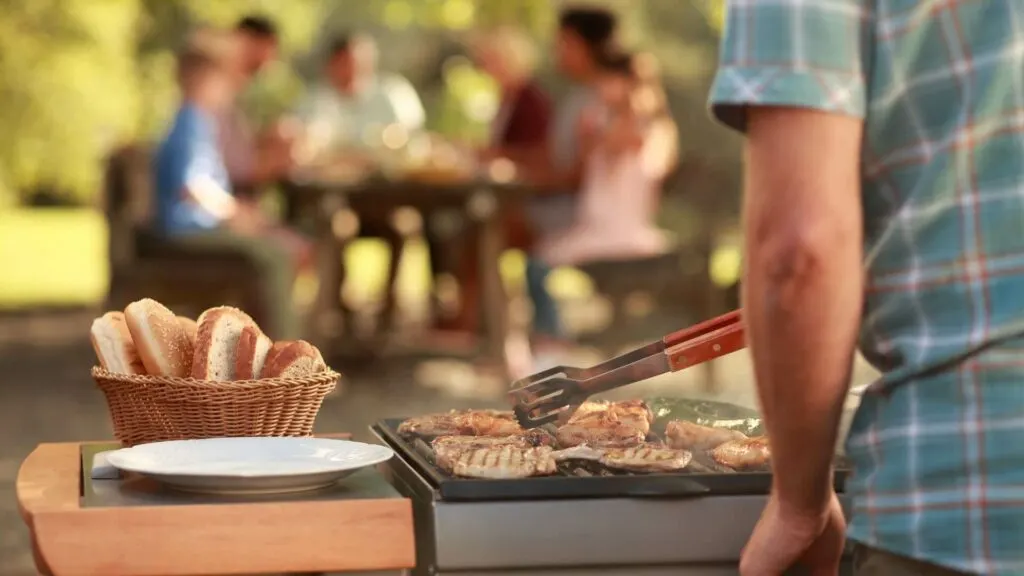When it comes to backyard barbecues, choosing between charcoal and gas grills goes beyond just preference—it can change your whole grilling experience. Charcoal grills are known for their smoky flavor, which many BBQ lovers swear by, while gas grills have become popular for their ease and convenience, especially for the casual cook. The debate over which is better has been around for a long time and is still a hot topic among BBQ fans and food experts.

Most people know the basics: charcoal gives that smoky flavor, and gas is quicker and easier. But there are more subtle pros and cons that often get overlooked. This guide explores factors like taste, convenience, cost, environmental impact, and versatility, helping you figure out which grill is right for your BBQ style and preferences. By the end, you’ll have a better idea of which one fits your needs and will elevate your grilling game.
Taste and Flavor: The Battle for BBQ Supremacy
When grading the taste of BBQ, the difference between charcoal and gas grills is key. Charcoal grills are known for giving food a deep, smoky flavor that many say can’t be matched, especially when paired with flavorful BBQ rubs. This comes from burning natural lump charcoal or briquettes, which add a rich, wood-fired taste to the meat. Gas grills, on the other hand, provide a cleaner and more controlled cooking experience.
Using propane or natural gas may not offer the same smoky flavor, but they make it easy to control the temperature. This allows you to perfectly sear steaks or cook delicate fish without worrying about flare-ups or uneven heat. Each method has its own benefits and is suited to different BBQ styles and preferences.
Convenience and Ease of Use
Whether you’re a casual griller or a BBQ pro, how easy your grill is to use can make all the difference. Gas grills are loved for their quick start — just turn a knob, ignite, and you’re cooking in minutes. They give you precise temperature control with simple adjustments, taking out much of the guesswork. Charcoal grills, on the other hand, need more prep time. You have to arrange and light the charcoal, then wait about 20 minutes for it to heat up.
Still, many people enjoy this part of the BBQ process. Controlling the temperature on a charcoal grill is trickier and involves adjusting vents and moving the charcoal, but for some, this hands-on approach makes grilling more satisfying. Each type of grill offers its own convenience, depending on your level of enthusiasm and cooking style.
Cost and Long-Term Investment
When thinking about cost, it’s not just the price of the grill that matters. Charcoal grills are usually cheaper upfront, which makes them a good choice for buyers on a budget. However, the cost of charcoal can add up over time. Gas grills, on the other hand, tend to be more expensive at first, but propane or natural gas is often cheaper in the long run.
Maintenance is another factor to consider. Charcoal grills need regular cleaning to remove ash, while gas grills may need occasional checks to keep burners and gas lines working properly. Taking all of this into account can help you decide which grill offers better value for your needs and budget.
Environmental Impact
As we become more aware of our environmental impact, the type of grill we choose matters. Charcoal grills have a larger carbon footprint because burning charcoal releases a lot of carbon dioxide and air pollutants. In contrast, gas grills, which run on propane or natural gas, produce fewer emissions and are more fuel-efficient, making them a cleaner option.
While charcoal fans may appreciate the smoky flavor, it comes with an environmental cost. Gas grills, on the other hand, offer a greener choice without sacrificing convenience. By understanding the environmental effects of each type of grill, we can make choices that support both our grilling habits and sustainability goals.
Versatility and Cooking Styles
Comparing charcoal and gas grills shows how each one suits different cooking styles and needs. Charcoal grills are great for adding a rich, smoky flavor, perfect for searing meats and slow-cooking dishes that need steady heat. You can use direct or indirect heat, making it versatile enough for grilling steaks or smoking ribs.
Gas grills, on the other hand, offer easy temperature control, letting you quickly switch between high heat for searing and low heat for roasting. This control is ideal for grilling foods like fish and vegetables without the hassle of managing a live flame. Gas grills also heat up fast, making them perfect for quick or frequent grilling.
Choosing between charcoal and gas grills ultimately depends on your personal cooking style and priorities. Charcoal grills deliver that rich, smoky flavor that many BBQ enthusiasts love, but they require more time and hands-on management. Gas grills, on the other hand, offer the convenience of quick start-up, precise temperature control, and cleaner cooking, making them ideal for those who prefer ease and speed. Whether you value taste, convenience, or environmental impact, understanding the strengths of each grill type allows you to make a choice that fits your grilling preferences and lifestyle.

Jessi is the creative mind behind The Coffee Mom, a popular blog that combines parenting advice, travel tips, and a love for all things Disney. As a trusted Disney influencer and passionate storyteller, Jessi’s authentic insights and relatable content resonate with readers worldwide.
